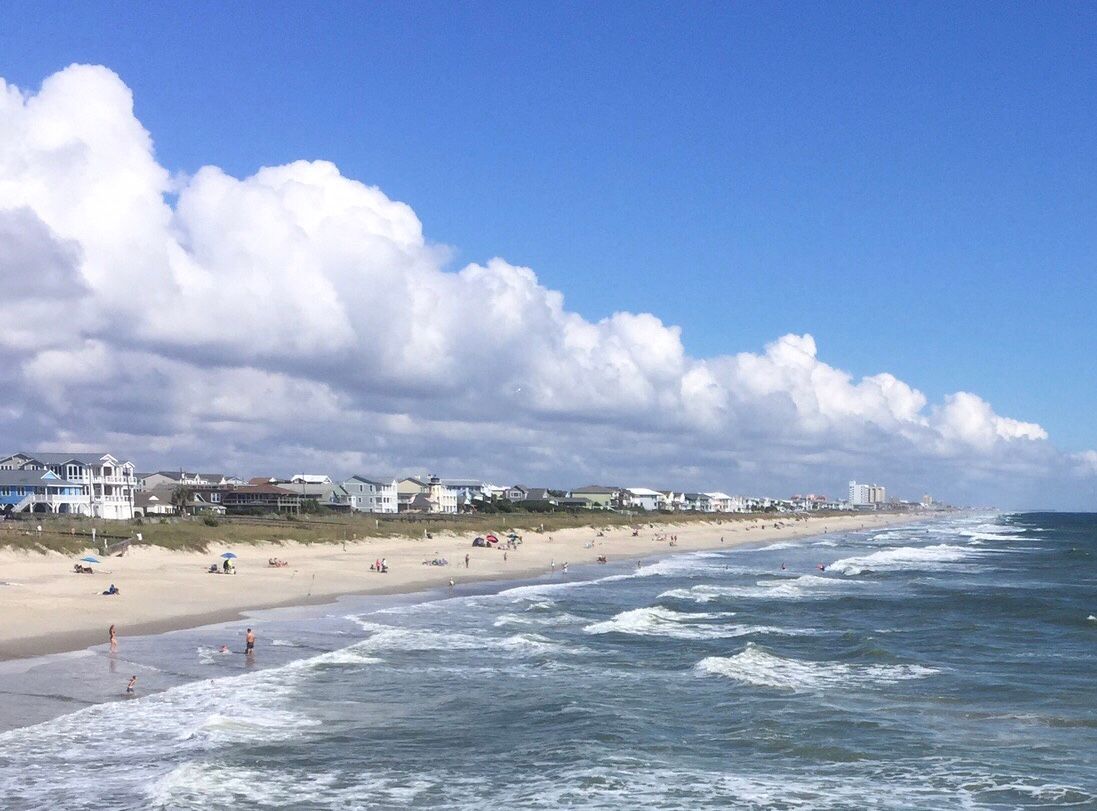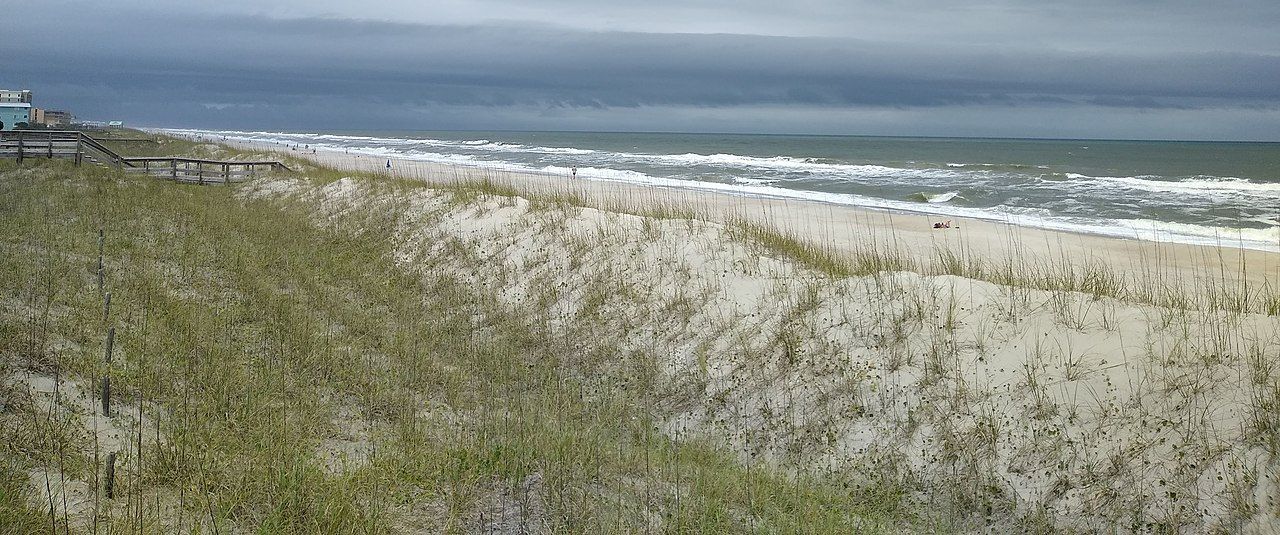Maximizing Your Rental Income: Year-Round Strategies for Carolina Beach Properties

Carolina Beach is a prime location for vacation rentals, with a steady flow of visitors looking for the perfect coastal getaway. But while summer bookings come quickly, the real challenge is keeping your property profitable all year. If you're a homeowner or investor in the area, understanding how to navigate seasonal demand, adjust pricing, and attract long-term renters can make all the difference in your bottom line.
This guide covers proven strategies to keep your rental income flowing throughout the year, whether managing the property yourself or working with a professional. From off-season marketing tips to guest experience upgrades, here's everything you need to know about making the most of your Carolina Beach rental.
Understanding the Carolina Beach Rental Market
Carolina Beach sees a high demand for short-term vacation rentals, especially from May through September. During this period, homeowners can charge premium rates, sometimes doubling or tripling their off-season pricing. However, occupancy rates drop once summer ends, and many properties sit vacant.
To keep your rental
profitable year-round, it's essential to understand the demand cycles. In the off-season, travelers looking for extended stays—such as snowbirds, remote workers, and traveling professionals—offer a great opportunity. Knowing how to pivot your rental strategy for different seasons is key to maximizing income.
Strategies for Maintaining High Occupancy Year-Round
The biggest challenge for rental owners is keeping bookings consistent
outside peak season. To avoid long vacancies, consider offering discounted rates for longer stays, marketing your rental to remote workers who need a quiet space with strong WiFi, and listing on platforms that cater to mid-term stays, such as Furnished Finder.
Another strategy is to offer flexible lease terms. Some guests may prefer a one- to three-month rental rather than committing to a full-year lease. By tailoring your rental options to different audiences, you can increase occupancy and keep income flowing even in the slower months.
Choosing Between Short-Term, Mid-Term, and Long-Term Rentals
Each rental strategy has its pros and cons. Short-term rentals offer higher nightly rates but require constant guest turnover, cleaning, and marketing. Mid-term rentals lasting between 30 and 90 days appeal to professionals, traveling nurses, and retirees escaping colder climates. They typically bring in less revenue per night but require less maintenance and guest management.
Long-term rentals provide the most stability, ensuring a consistent income without the frequent upkeep of short-term stays. However, they also come with lower flexibility and may not generate as much revenue as vacation rentals. The best strategy often involves a mix of these rental types, adjusting as the market shifts throughout the year.
Off-Season Strategies to Keep Your Rental Profitable
Many owners assume that the off-season means their property will sit empty, but with the right approach, it doesn't have to. Snowbirds from colder states always look for comfortable places to stay in winter. Marketing your rental to this audience with lower rates for extended stays can help fill gaps in bookings.
Another approach is targeting digital nomads and remote workers. With more people working remotely than ever, a rental with a dedicated workspace, high-speed internet, and a quiet location can be an attractive option. Offering bundled utilities and discounts for longer stays can make your property more appealing.
Preparing Your Property for the Off-Season
Keeping your rental
well-maintained during the slower months ensures it's ready for peak season. Deep clean and minor upgrades like fresh paint and appliance repairs or fixtures can keep your property in shape.
Security is another concern during the off-season. If your property will be vacant for long periods, consider installing smart locks, security cameras, and motion-sensor lighting. Regular property checks by you or a local property manager can help prevent leaks, pest infestations, or damage from storms.
Upgrading Your Property to Increase Revenue
A few well-planned upgrades can significantly boost your rental income. Guests are willing to pay more for modern, well-designed spaces. Simple updates like new linens, upgraded kitchen appliances, or stylish furniture can make your property more competitive.
Outdoor spaces also matter. A patio with comfortable seating, string lights, and a grill can make a property feel like an ideal beach retreat. Technology upgrades, such as smart TVs, a high-quality coffee machine, and a keyless entry system, can also enhance guest experience and lead to better reviews.
The Role of Professional Property Management in Maximizing Income
Managing a rental property requires time and effort; some owners prefer to leave the details to professionals. A good property manager can handle marketing, guest communication, maintenance, and compliance with local regulations.
Hiring a property manager comes at a cost, but it can save time and ensure a smoother operation. If you prefer to be hands-off, outsourcing to a professional can be a smart investment, especially if you own multiple properties or don't live nearby.
Marketing Strategies to Keep Your Property Booked
A well-marketed rental gets more bookings. Simply listing on Airbnb or Vrbo isn't enough—you need to actively promote your property. Having a strong online presence through social media, a Google My Business profile and direct booking options can help attract more guests.
Encouraging past guests to leave positive reviews also makes a huge difference. Properties with high ratings and detailed guest feedback rank better on booking platforms and attract more inquiries. Special promotions, referral discounts, or a loyalty program for repeat guests can also help maintain steady bookings.
Pricing Strategies for Maximum Revenue
Pricing should be flexible throughout the year. Relying on the same rates in peak and off-peak seasons will leave you either overpriced in slow months or underpriced in busy months.
Using dynamic pricing tools, which adjust rates based on market demand, can help optimize your income. If you're managing the pricing manually, study your competition and adjust rates accordingly. In the off-season, offering discounts for longer stays or last-minute bookings can keep your calendar full.
Local Regulations and Compliance
Carolina Beach has specific rental laws, and staying compliant is crucial. Some areas require permits for short-term rentals, and tax regulations apply to rental income. Homeowner association (HOA) rules may also limit how you rent out your property.
If you're managing your property yourself, make sure to stay updated on local policies to avoid fines. Working with a property manager or legal expert can help you navigate these requirements smoothly.
Guest Experience and Reviews: The Key to Repeat Bookings
Providing a great guest experience leads to positive reviews, attracting more bookings. A well-stocked rental with clear check-in instructions, responsive communication, and personal touches—like a welcome basket or local recommendations—can leave a lasting impression.
When issues arise, how you handle them matters. Addressing complaints quickly and professionally can prevent bad reviews. Many guests return to properties where they've had a great experience, so making sure each stay is smooth and enjoyable can build long-term success.
Future Trends in the Carolina Beach Rental Market
The rental industry is changing, and staying ahead of trends can keep your property competitive. More travelers now look for eco-friendly stays, smart home technology, and flexible check-in options. Catering to remote workers with dedicated office spaces and high-speed WiFi can also open up new opportunities.
Contactless check-in, enhanced cleaning protocols, and sustainable home features are increasingly in demand. Keeping your rental updated with these trends can ensure continued success.
Conclusion: Taking the Next Steps to Maximize Your Income
Running a profitable rental in Carolina Beach isn't just about peak season bookings. To stay occupied year-round requires innovative pricing, strong marketing, and strategic guest targeting. Whether you manage your rental or work with professionals, the key to success is staying adaptable and proactive.
By maintaining your property, adjusting your marketing, and upgrading guest experiences, you can ensure that your rental remains a profitable investment no matter the season.
Maximizing rental income in Carolina Beach is possible with the right approach. With smart strategies and attention to detail, your property can generate consistent revenue all year long.
Blog
Contact Us
We will get back to you as soon as possible
Please try again later
All Rights Reserved | powered by DoorLoop


